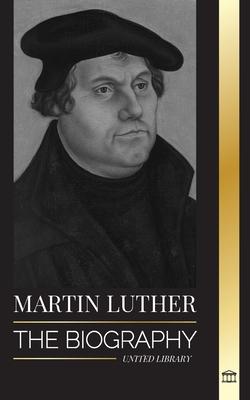Martin Luther: The Biography of a German Theologian that Ignited the Protestant Reformation and Changed the World" is a gripping exploration of the life and transformative impact of Martin Luther, the German priest, theologian, and author who reshaped the religious landscape of Europe. Born on November 10, 1483, Luther's journey would lead him to become the seminal figure of the Protestant Reformation, forever altering the course of history.
Ordained to the priesthood in 1507, Luther later began to question and challenge various teachings and practices of the Roman Catholic Church, most notably the controversial view on indulgences. In his Ninety-five Theses of 1517, Luther presented an academic discourse on the practice and efficacy of indulgences, sparking a theological debate that would reverberate throughout Europe and beyond. Luther's steadfast refusal to renounce his writings, despite the demands of Pope Leo X and Holy Roman Emperor Charles V, resulted in his excommunication by the Pope and condemnation as an outlaw by the Emperor at the Diet of Worms in 1521. Despite these adversities, Luther's theological beliefs continued to resonate, forming the foundation of Lutheranism.
Throughout his life, Luther emphasized the concept that salvation and eternal life are not earned through good deeds, but are bestowed as a free gift of God's grace through faith in Jesus Christ as the redeemer from sin. Challenging the authority of the pope, Luther proclaimed the Bible as the sole source of divinely revealed knowledge and rejected the notion of sacerdotalism, asserting that all baptized Christians constitute a holy priesthood. In addition to his theological contributions, Luther's translation of the Bible into the German vernacular revolutionized the accessibility of Scripture for the common people, significantly impacting both the Church and German culture. Furthermore, Luther's marriage to Katharina von Bora, a former nun, set a new precedent for clerical marriage, enabling Protestant clergy to marry. While Luther's groundbreaking ideas brought about positive change, it is important to acknowledge that some of his later works expressed anti-Judaistic views, advocating for the expulsion of Jews and the burning of synagogues. Additionally, his writings targeted Roman Catholics, Anabaptists, and nontrinitarian Christians. Historians widely recognize that Luther's rhetoric significantly contributed to the development of antisemitism in Germany and the rise of the Nazi Party.
In "Martin Luther: The Biography of a German Theologian that Ignited the Protestant Reformation and Changed the World," readers are immersed in the fascinating life and enduring legacy of a man who challenged the religious and political structures of his time. This meticulously researched biography sheds light on Luther's transformative ideas, his impact on Christianity, his influence on the German language through his translation of the Bible, and the complexities of his views on various religious groups. It is an essential read for anyone interested in the Reformation era, religious history, and the lasting effects of Luther's theological revolution.
